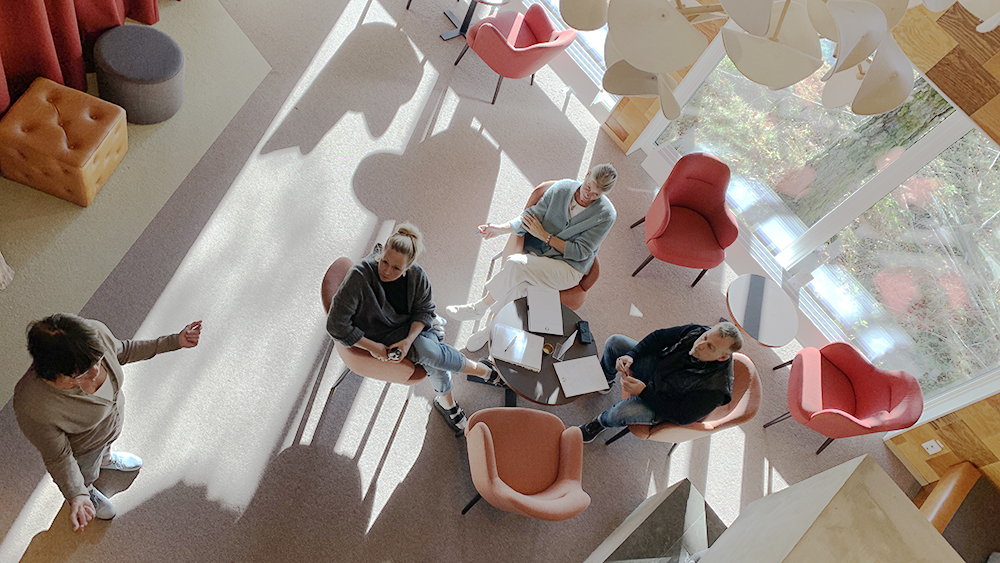
Education in Communicology
The education is designed as an activity-based education program (training program) that leads to an Inter-Disciplinary Meta-Competence.
Educational structure
The education is divided into modules that last five days each. It consists of three levels, where each level requires and builds upon previous modules.
- Basic level consists of four training modules; Modules I, II, III and IV
- Intermediate level consists of Basic level plus two additional modules; Filter and PED
- Advanced level consists of Intermediate level plus at least four additional modules; Product development, Teaching Communicology and a minimum of two self-chosen modules
You choose your own study pace.
To become a Communicologist at least ten modules are required – Basic, Intermediate and Advanced level.
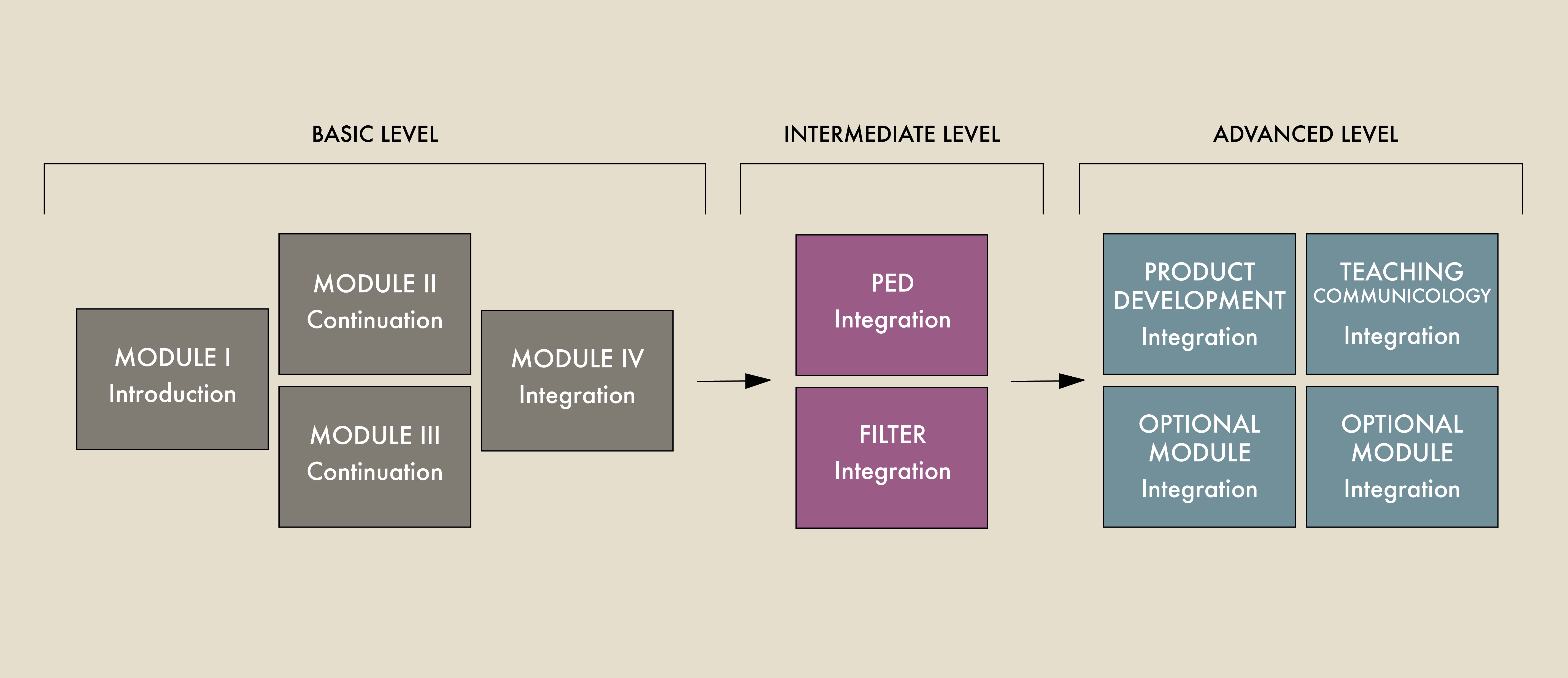
Within the educational program knowledge is organized, made available and comprehensible to people both inside and outside of academic context. Everyone can enter and go through this education regardless of background, previous education or professional experience. It can be used as basic education, supplementary or further education/training.
The benefit of the competence
- Differentiate between different types of change work
- Perform and evaluate change work in different contexts
- Discover phenomena and processes that lie behind different concepts
- Translate between different professional languages
- Perform and contribute to professional development and collaboration within and between different professional groups and subject areas
About the Communicological Competence
Watch Communicologist and Educator Shirin Hornecker give a brief presentation of the Meta-Discipline Communicology and the Value of the Education.
Summer Program 2026
A warm welcome to Löftadalens Folkhögskola in Åsa on the west coast of Sweden. Institute of Communicology presents Module I, II and III in a beautiful setting by the North Sea. Accomodation in single room with full board.
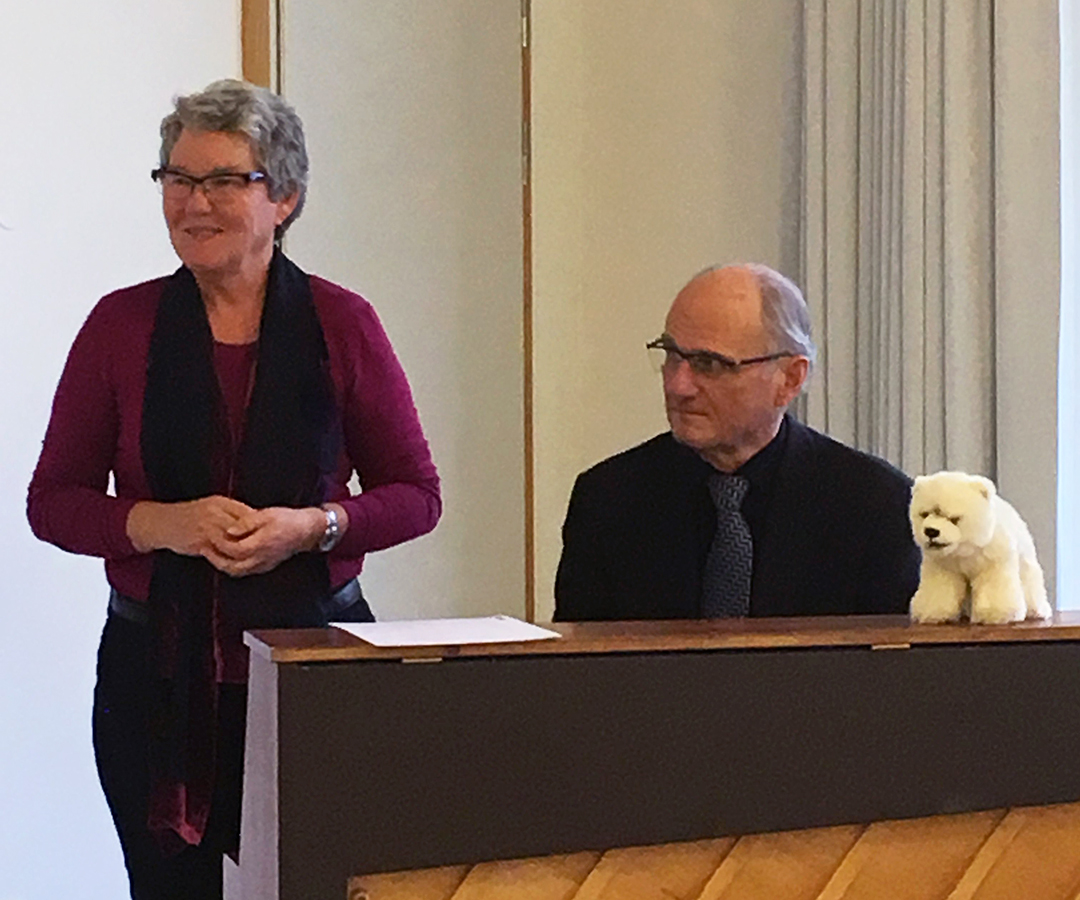
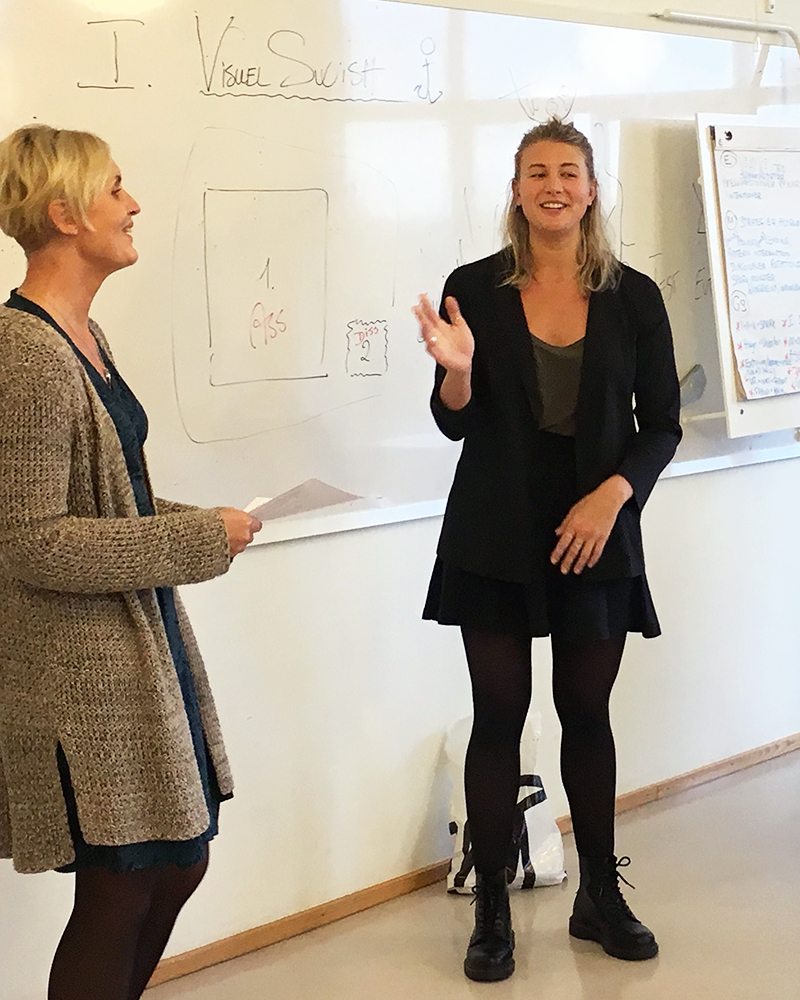
Actitivity-based education
To provide a prerequisite for effective learning, the pedagogical activity-frames during the education are varied. Some examples are lectures, demonstrations, film elements, analysis (filtration), guided training sessions, exchange of experience, reflection and transfer of knowledge and competence.
The organization of the material and a great variety of pedagogical activity-frames are prerequisites for effective learning and building of competence. The program is designed so that self-development, collaboration training and leadership development is a continuous process during the education, as well as self-evaluation and supervision.
The benefit
The Inter-Disciplinary Meta-Competence gives you the possibility to:
- Differentiate between different types of change work
- Perform and evaluate change work in different contexts
- Discover phenomena and processes that lie behind different concepts
- Translate between different professional languages
- Perform and contribute to professional development and collaboration within and between different professional groups and subject areas
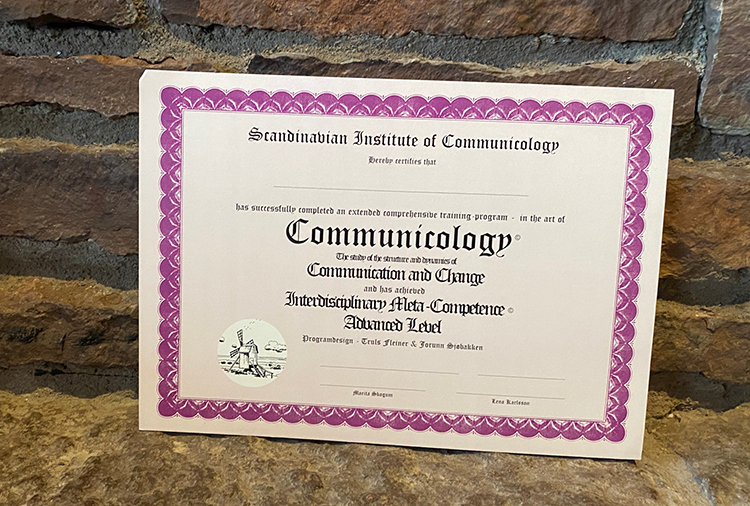
Further training and education
Main forums for certified Communicologists regarding the Communicology process and the continuation of the metadiscipline Communicology.
- Educating Communicologists
– a five-day forum for the continuation of the Meta-Discipline Communicology
- Convention
– a yearly weekend with focus on different relevant themes. Learning and laughing together with colleagues.
Ceremonies of Certification
Celebrations are held, and Certificates are issued, when each individual has passed Basic, Intermediate and Advanced level.
